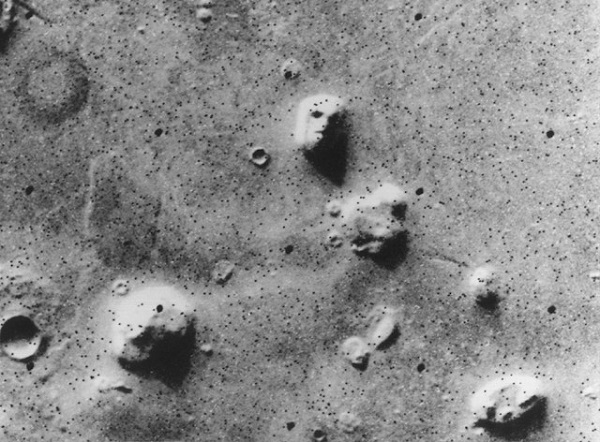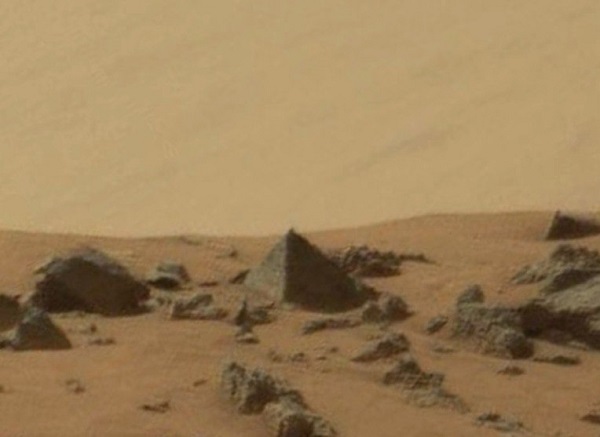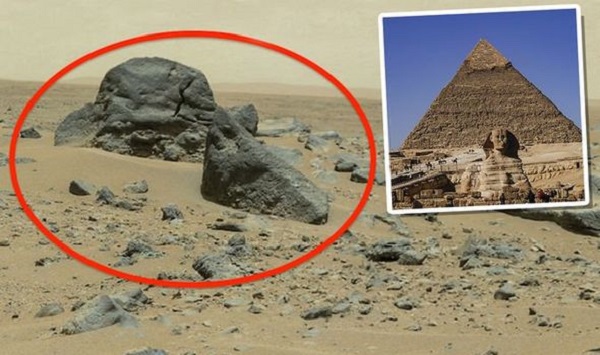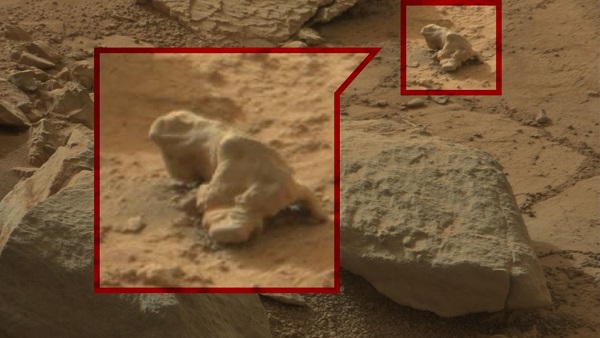Mars, our enigmatic red neighbor, continues to captivate the world with its mysteries. From potential signs of past water to the search for life, the Red Planet has been a source of fascination for scientists and space enthusiasts alike. In recent years, a new and intriguing discovery has added another layer to the Martian enigma: two structures that have been likened to pyramids. Are these truly remnants of an ancient civilization or simply the result of natural processes? Let’s delve into this intriguing mystery and explore the possibilities.
1. The Curious Structures:
The first pyramid-like structure, officially named the “Pyramid of Elysium,” was discovered in the Elysium Planitia region of Mars. This feature stands approximately 1.6 kilometers tall and has a wide base, giving it a striking resemblance to the pyramids of ancient Egypt. The second structure, known as the “Pyramid of Cydonia,” was found in the Cydonia Mensae region and shares a similar pyramid-like shape, albeit on a smaller scale.

2. The Martian Paradox:
Upon initial discovery, these structures immediately sparked heated debates within the scientific community. Could these formations be evidence of an ancient Martian civilization? The Pyramid of Cydonia, in particular, bore a resemblance to the famous “Face on Mars,” a formation that also ignited controversy but was later revealed to be a trick of light and shadow.

However, skepticism is essential in the scientific pursuit, and experts quickly pointed out alternative explanations. Geologists argued that these pyramid-like structures could be the result of natural geological processes, such as erosion or volcanic activity. In fact, pyramidal forms are not uncommon in nature, and similar structures can be found on Earth in regions with complex geological histories.
3. Geological Processes at Play:
To unravel this mystery, scientists have turned to the wealth of data collected by various Mars missions, including the Mars Reconnaissance Orbiter (MRO). High-resolution images from MRO have allowed researchers to closely examine the Martian surface and gain valuable insights into the history of these formations.

The Pyramid of Elysium, for instance, shows signs of layered sediments and erosion patterns consistent with wind and water erosion. This suggests that its shape may indeed be a product of natural forces at play over millions of years. Similarly, the Pyramid of Cydonia exhibits features that can be explained by the gradual erosion of sedimentary rock layers.
4. A Scientific Quest for Truth:
While the evidence for these structures being remnants of an ancient Martian civilization remains scant, scientists continue to investigate with an open mind. New missions to Mars are planned, with the hope of gathering more data and shedding further light on these intriguing formations.

As we await further discoveries, it’s important to remember that science is a process of inquiry and discovery. Extraordinary claims require extraordinary evidence, and the pyramid-like structures on Mars have yet to provide conclusive proof of intelligent life or ancient civilizations. Nevertheless, the exploration of Mars is an exciting endeavor that may one day unveil even more profound mysteries of the Red Planet.

In the grand tapestry of Martian exploration, the two pyramid-like structures discovered on the planet’s surface remain a captivating enigma. While they have captured the imagination of many, the prevailing scientific consensus leans towards natural geological processes as the most likely explanation for their formation. As we continue to unravel the secrets of Mars, it’s essential to approach these mysteries with curiosity, skepticism, and an unwavering commitment to the pursuit of knowledge.





